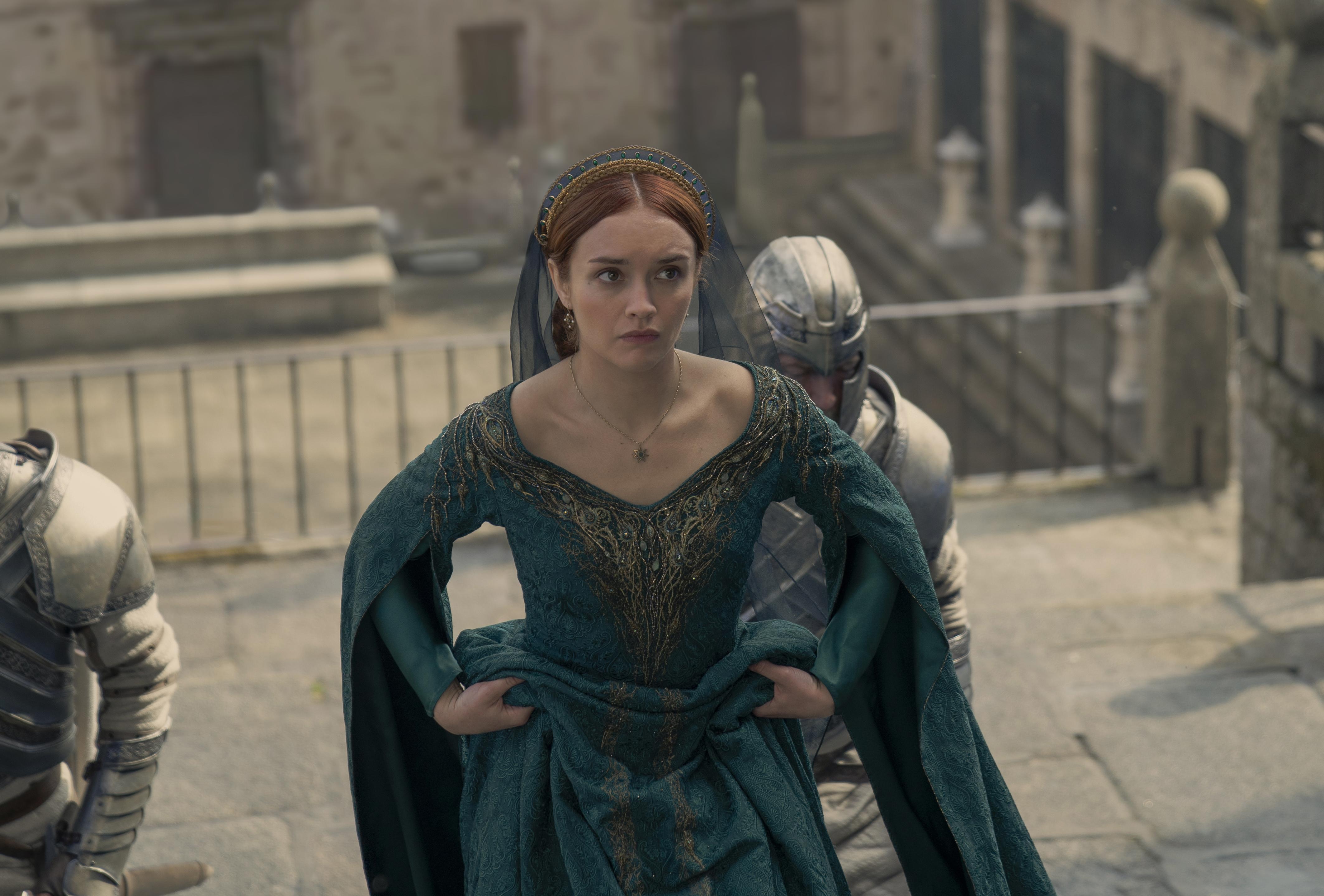A few weeks ago, the cast and crew of House of the Dragon assembled in Leicester Square, dressed to the nines despite the driving London rain. It was the sort of premiere usually reserved for a blockbuster movie – a Star Wars, say, or a big-budget vehicle for one of Hollywood’s trio of Chrises – but the hype, at least among the show’s staff, seemed palpable. “Is this going to be all-out war?” the night’s compere, Sue Perkins, asked the show’s creator, Ryan Condal. “Well,” he replied temperately, “it’s more about the preparation for war.” The audience’s sigh was visceral.
Condal, we now know, was true to his word, because House of the Dragon’s second season has begun to feel like a stopgap. And the latest episode – “The Burning Mill” – is emblematic of this: the narrative was scarcely progressed at all, the action deferred to inconsequential, verbose exchanges culminating in a scene so preposterous it will shake the already limited trust of the show’s fans.
This was a criticism routinely levelled at a late-stage, terminal Game of Thrones. Journeys that had once been painstakingly endured over several episodes, reinforcing the medieval verisimilitude, suddenly occurred in a single cut. George RR Martin’s meticulous plotting was replaced by ludicrous sequences – like the much-maligned season seven episode in which an Avengers-style supergroup head north of the wall on a zombienapping adventure – that seemed to come from a different show. The third episode of this new series climaxed with a scene in which exiled Princess Rhaenyra (Emma D’Arcy) sneaks back into King’s Landing, dressed as a nun, to powwow with former bestie Alicent (Olivia Cooke). “It’s too late, Rhaenyra,” Alicent hisses, as the two women fail to make peace.
But is it too late for this Westerosi prequel, too? It’s worrying that House of the Dragon seems to be taking the wrong lessons from Thrones’ ignominious ending. Take last week’s battle of the twins – Ser Erryk vs Ser Arryk – which evoked the much-hyped, but hugely underwhelming, “Cleganebowl” from Thrones’ penultimate episode. There, The Hound and his brother, The Mountain, both went out in a blaze of silliness. But at least those characters were long-established fan favourites; Cargyll twins, we hardly knew ye. Showrunner Condal – whose pre-Dragon credits included dodgy Dwayne “The Rock” Johnson vehicles Hercules and Rampage – has been gifted the opportunity to undo the damage done by DB Weiss and David Benioff. But at present, he looks to be squandering it.
The problem with House of Dragon is not the absence of bloody set-piece battles, nor the restraint in deploying its airborne howitzers. After all, at its best, Game of Thrones was an exercise in delayed gratification, and often implicit carnage (think of the Battle on the Green Fork, which happens almost entirely off screen). But the chessboard at the start of Game of Thrones was in its opening position; the gambit arriving only when Ned Stark was sent to King’s Landing. With House of the Dragon, we find ourselves already in a civil war, a state of zugzwang where each move is disastrous for its participants. We are not seeing the whole game unfolding for us, and with things already so finely poised, each check feels wilful, almost spiteful.
“Even victory might be so bloody as to be counted a loss,” Rhaenyra warns Alicent. This episode was full of foreshadowing. Daemon (Matt Smith) arrives in Harrenhal to visitations that tell him he will die there, while Rhaenyra prophesies the pyrrhic victory the whole series has been building towards. But it’s all well and good to insinuate the violence – the drama – to come. The question is how to make these episodes, as the pawns make their slow march across the board, emotionally valuable and narratively worthwhile. At the moment, House of the Dragon feels trapped. Characters constantly refer to the coming war – Aegon (Tom Glynn-Carney) almost heads off to the Riverlands, and Baela (Bethany Antonia) almost turns Ser Criston Cole (Fabian Frankel) into a barbecue – but the moment never comes. And in that suggestive void, Condal seems unable to confect any real stakes.

It seems clear at this point, as we enter the middle run of this second season, that we will have to wait until the trilogy’s closing third season for the true Dance of Dragons to begin. But House of the Dragon would do well to remember that all the flying lizards, ice zombies, and internecine politicking of A Song of Ice and Fire serve only one master: human drama. All-out war comes in many forms, and the absence of explosive visuals shouldn’t preclude emotional fireworks.

